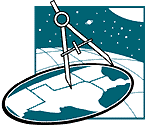|

Developing Self-Directed Learners
an excerpt from the National Science Education Standards
Students need the opportunity to evaluate and reflect on their own
scientific understanding and ability. Before students can do this, they
need to understand the goals for learning science. The ability to
self-assess understanding is an essential tool for self-directed
learning. Through self-reflection, students clarify ideas of what they
are supposed to learn. They begin to internalize the expectation that
they can learn science. Developing self-assessment skills is an ongoing
process throughout a student's school career, becoming increasingly more
sophisticated and self-initiated as a student progresses.
Conversations among a teacher and students about assessment tasks and
the teachers' evaluation of performance provide students with necessary
information to assess their own work. In concert with opportunities to
apply it to individual work and to the work of peers, that information
contributes to the development of students' self-assessment skills. By
developing these skills, students become able to take responsibility for
their own learning.
Teachers have communicated their assessment practices, their standards
for performance, and criteria for evaluation to students when students
are able to
- Select a piece of their own work to provide evidence of
understanding of a scientific concept, principle, or law - or their
ability to conduct scientific inquiry.
- Explain orally, in writing, or through illustration how a work sample provides evidence of understanding.
- Critique a sample of their own work using the teacher's standards and criteria for quality.
- Critique the work of other students in constructive ways.
Involving students in the assessment process increases the
responsibilities of the teacher. Teachers of science are the
representatives of the scientific community in their classrooms; they
represent a culture and a way of thinking that might be quite unfamiliar
to students. As representatives, teachers are expected to model
reflection, fostering a learning environment where students review each
others' work, offer suggestions, and challenge mistakes in investigative
processes, faulty reasoning, or poorly supported conclusions.
A teacher's formal and informal evaluations of student work should exemplify scientific practice in making judgments. The standards for judging the significance, soundness, and creativity of work in professional scientific work are complex, but they are not arbitrary. In the work of classroom learning and investigation, teachers represent the standards of practice of the scientific community. When teachers treat students as serious learners and serve as coaches rather than judges, students come to understand and apply standards of good scientific practice.
Reprinted with permission from National Science Education Standards, by
the National Academy of Sciences, copyright 1996. Courtesy of the National
Academy Press, 2101 Constitution Ave. N.W., Washington, DC 20418.
1-800-624-6242.
Classroom Compass Back Issues:
Issue 2.2 Contents:
Previous :
Next
|